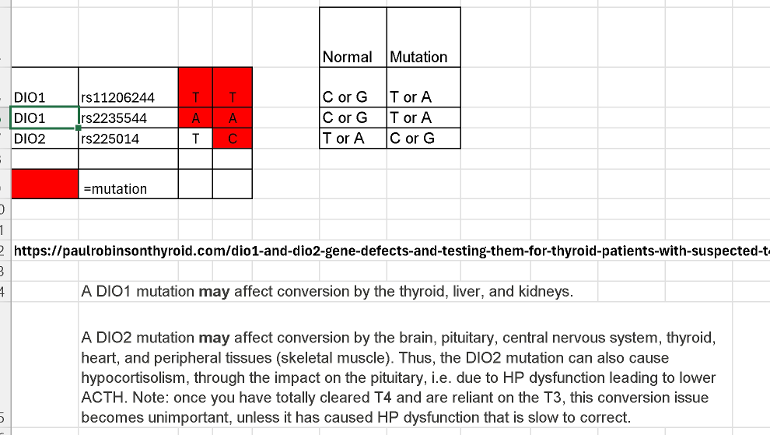I thought it was more clear cut when I did this test but on reading more the wise ones on here point out it is not black and white and only a guide more potential for conversion issues. Shoot me down if I am wrong ... would welcome comments.
For DIO2 - 1 of my results is mutated - more likely a poor converter
For DIO1 2 markers - I am fully mutated on both of each. - it seems this is less clear cut on poor conversion but likely more chance of issues, probably not ideal!
I followed Paul Robinson blog post - download massive text file, use search to find eg "rs11206244" it has to fully match - some have additional numbers after.
rs2235544
rs225014
I realise ancestry lab is not "recognised" fully but decided because I got a file with 50,000 of the 100,000 DNA results for £75 . It takes a couple of months to come back so not fully sure of my logic now ...
I am on combination T4/T3 as my blood results were always low on T3 and I feel better on some T3.
I have not seen and Endo.
I got a report done on full report from these people having learned about it from here, they process the massive report £20 52 pages of potential issues, they look at it from a nutritional point of view to try to help guide treatments. etc. Interesting and potentially useful later ?
Overall not sure I am any wiser, the T3 blood tests and how you feel are more significant.
I will probably be emailing this to my 3 children so they know who is to blame for any DNA issues or it may be of use to them at some point ?

